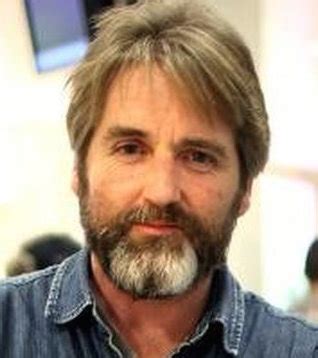Top 71 Fragmentation Quotes & Sayings - Page 2
Explore popular Fragmentation quotes.
Last updated on April 21, 2025.
When I make music I try to be as honest as I can to how I experience the world. Like how you arrange a piece of music formally. I tend to observe a lot of chaos or whatever, the fragmentation and melancholy. That's the filter I synthesize my world view with. If I didn't formally have that chaos and it was really linear, it would make my skin crawl.
An overwhelming number of economists, international civil servants, and policy-makers argue that a fragmentation of the Eurozone would cause a new depression and massive wealth destruction around the world. It would also end the period of economic integration that has characterized world politics since the end of the Cold War.
Another problem of fragmentation is that thought divides itself from feeling and from the body. Thought is said to be the mind; we have the notion that it is something abstract or spiritual or immaterial. Then there is the body, which is very physical. And we have emotions, which are perhaps somewhere in between. The idea is that they are all different. That is, we think of them as different. And we experience them as different because we think of them as different.
It is therefore absurd to approach the subject of health piecemeal with a departmentalized band of specialists. A medical doctor uninterested in nutrition, in agriculture, in the wholesomeness of mind and spirit is as absurd as a farmer who is uninterested in health. Our fragmentation of this subject cannot be our cure, because it is our disease. The body cannot be whole alone. Persons cannot be whole alone. It is wrong to think that bodily health is compatible with spiritual confusion or cultural disorder, or with polluted air and water or impoverished soil.
When men and women fail to form stable marriages, the result is a vast
expansion of government attempts to cope with the terrible social needs that result.
There is scarcely a dollar that the state and federal government spends on social
programs that is not driven, in large part, by family fragmentation: crime, poverty,
drug abuse, teen pregnancy, school failure, mental and physical health problems.
What causes [fragmentation] if not a need to act that specializes us and limits us to the horizon of a particular activity? Even if it turns out to be for the general interest (which generally isn't true), the activity that subordinates each of our aspects to a specific result suppresses our being as an entirety. Whoever acts substitutes a particular end for what he or she is, as a total being.
On one level my sense of despair had been dispelled by therapy, yet on another it had not been replaced by either the desire for a future or the concept of one. I felt more aware of who I was, but that in itself-dominated as it was by sensations of fragmentation and isolation-filled me with no great hope, and in many ways only fuelled an appetite for destruction.
A lot of people who want to see the short story have a renaissance of readership - they tend to think of short stories, and sometimes poems too, as being well-suited to the way we now live, with all of these broken-up bits of time. I hope they're right, but my sense is that our fiction reading has become, if anything, more cherished as a kind of escape from fragmentation.
A split between the U.S. and its traditional allies, if it becomes a permanent feature of the new global order, would lead to deeper fragmentation among the world's market-oriented democracies. That will surely shift the long-term balance of power in China's favor, as it moves steadily toward becoming the world's largest economy.
In the Germany of the l920s, the Weimar Republic, both organismic biology and Gestalt psychology were part of a larger intellectual trend that saw itself as a protest movement against the increasing fragmentation and alienation of human nature. The entire Weimar culture was characterized by an antimechanistic outlook, a "hunger for wholeness". Organismic biology, Gestalt psychology, ecology, and, later on, general systems theory all grew out of this holistic zeitgeist.
The philosopher Descartes believed he had found the most fundamental truth when he made his famous statement: "I think, therefore I am." He had, in fact, given expression to the most basic error: to equate thinking with Being and identity with thinking. The compulsive thinker, which means almost everyone, lives in a state of apparent separateness, in an insanely complex world of continuous problems and conflict, a world that reflects the ever-increasing fragmentation of the mind.










